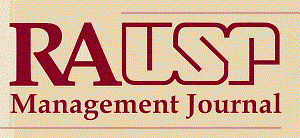Abstract
Purpose
In the backdrop of job demands-resources model, the purpose of this paper is to investigate the effect of selected job resources (job autonomy and rewards and recognition) and job demands (problem with work) on innovative work behaviour through the mediation of employee engagement in the higher education sector of India.
Design/methodology/approach
The sample consists of randomly selected 275 teachers from higher education institutions from a city in India. This study used PLS-SEM for data analysis.
Findings
The results suggest that employee engagement associates closely with innovative work behaviour. Job autonomy, one of the resources, affects innovative work behaviour directly and its effect does not move via employee engagement. Further, reward and recognition does not impact innovative work behaviour directly, rather, its effect moves through employee engagement. Finally, the work suggests that employee engagement mediates between selected job resources and job demands and innovative work behaviour.
Research limitations/implications
This study can be extended to include more demands and resources which are unique to academic institutions. For example, a transparent career path to all teachers or a high-octane research culture can serve as a boon. Additionally, their interaction effect can also be studied. The present study being a cross-sectional study, at best, offers a snap-shot view of relationship among the variables.
Practical implications
This study shall help organizations to use job resources and job demands to enhance teachers’ engagement and innovative work behaviour. Specifically, results of this study offer a reason to academic institutions to give more autonomy and rewards to their teachers to eke out innovative work behaviour.
Social implications
Firstly, this study will have a positive outcome for students who will be the prime beneficiaries of innovative work behaviour of teachers. Secondly, broadly the society and its constituents will get benefited by improvement in research outcomes.
Originality/value
The outcome of this study proposes that job autonomy and reward and recognition do not connect with employee engagement and innovative work behaviour in a known way.
Keywords
Innovative work behaviour; Employee engagement; JD-R model

 Thumbnail
Thumbnail
 Thumbnail
Thumbnail

